Search
Search Results
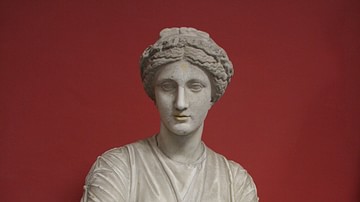
Article
Hesiod on the Birth of the Gods
The Greek poet Hesiod (c. 700 BCE) is most famous for his works Theogony and Works and Days. In this passage from Theogony, Hesiod relates the birth of the gods from cosmic Chaos and follows the lineage through the great Zeus, King of the...
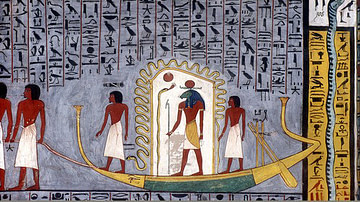
Article
Gods & Goddesses of Ancient Egypt - A Brief History
The land of ancient Egypt was alive with the spirit of the gods. The sun god Ra broke from the darkness every morning in his great boat, bringing the light, and many of the gods watched over the people by night as the stars. Osiris caused...
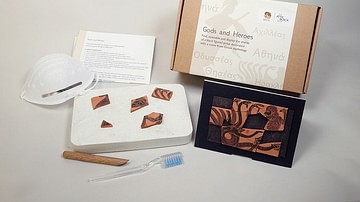
Article
Gods and Heroes Archaeology Kit Review
If you are reading this, you probably love history and archaeology. And if you have children, then you have probably struggled at times to excite them about ancient ruins and archaeology. Here is an idea: let them be an archaeologist and...

Interview
Interview: Gods of Thunder by Tim Pauketat
Join World History Encyclopedia as they chat with Tim Pauketat all about his new book Gods of Thunder: How Climate Change, Travel, and Spirituality Reshaped Precolonial America, published by Oxford University Press. Kelly: Thank you so much...
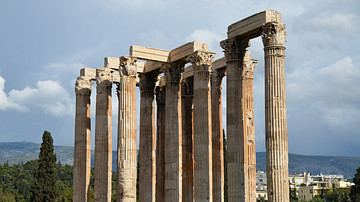
Image
Temple of Olympian Zeus, Athens
The remaining Corinthian columns of the 5th century BCE temple of Olympian Zeus, Athens. It was not completed until the reign of the Roman Emperor Hadrian in the 2nd century CE, some 638 years after the project had begun.
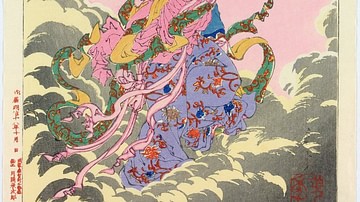
Article
Most Popular Gods & Goddesses of Ancient China
There were over 200 gods and goddesses worshipped throughout ancient China, but if one were to count every deity or spirit, the number would be over 1,000. Each town, village, city, field, farm, and sometimes even separate plot in a graveyard...
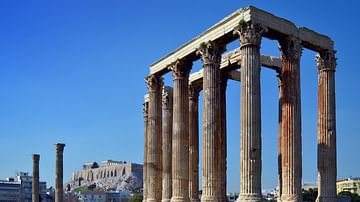
Image
The Temple of Olympian Zeus, Athens
The Temple of Olympian Zeus, Athens. Completed 131 CE.
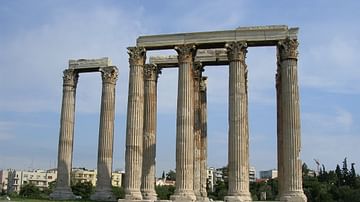
Image
Temple of Olympian Zeus, Athens
The Temple of Olympian Zeus, Athens. Completed 131 CE.
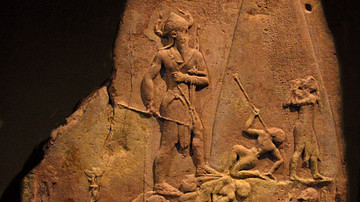
Article
The Curse of Agade: Naram-Sin's Battle with the Gods
The Curse of Agade is a story dated to the Ur III Period of Mesopotamia (2047-1750 BCE) though thought to be somewhat older in origin. It tells the story of the Akkadian king Naram-Sin (r. 2261-2224 BCE) and his confrontation with the gods...
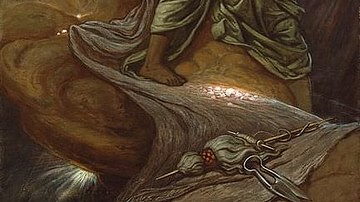
Definition
Theogony
The Theogony is an 8th-century BCE didactic and instructional poem, credited to the Greek poet Hesiod. The Theogony was, at first, not actually written down, rather, it was part of a rich oral tradition which only achieved written form decades...